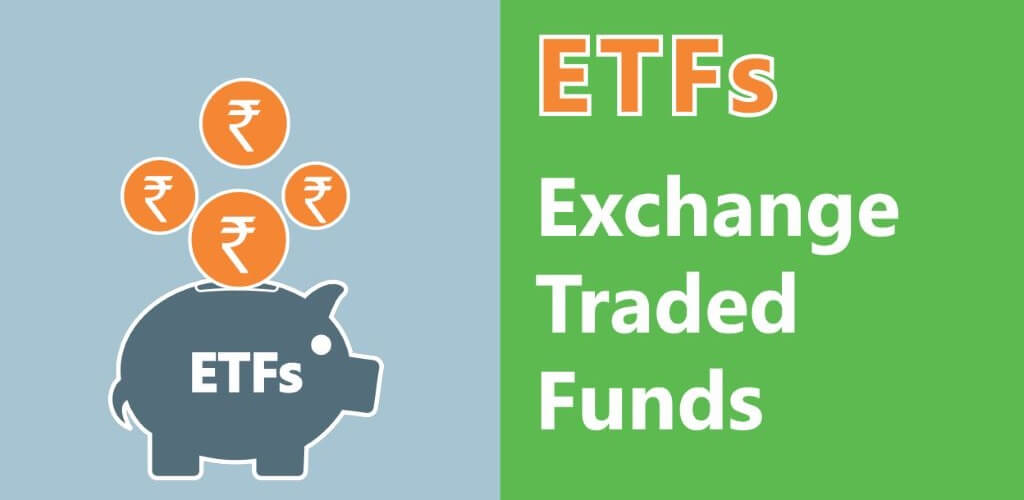ETFs have become increasingly popular worldwide over time, and India is no exception. The funds offer opportunities to individuals who want to invest small amounts of money. It will help them to earn good returns in the future from this investment.
This blog post will look at what is ETF fund, how it works, and the difference between ETFs and mutual funds.
What is ETF Fund?
An exchange-traded fund (ETF) is a type of investment fund that trades like individual shares on stock exchanges. An ETF typically includes bonds, stocks or both listed according to a specific index or sector.
How do EFTs work?
EFTs pool investments from different investors and use these to buy wide portfolios of assets such as stocks, bonds, and/or commodities. For example, a Nifty ETF aims to reproduce the Nifty 50 index. The Asset Management Company (AMC), which usually acts as the fund sponsor, invites institutions to subscribe to their ETF portfolio. This portfolio is created in the same proportions as the constituents of the relevant index. These units are then sold by retail investors who trade on stock exchange platforms.
Types of ETFs
Index ETF
The performance of Index ETFs tracks a specific index such as Nifty or Sensex, resulting in replication. They give wide market exposure and thus are suited to passive investors looking for low expense ratios.
Gold exchange-traded funds
Thus, one can benefit from the upward or downward gold prices without directly purchasing the metal. Gold ETFs are also a good way of hedging against inflation and for risk diversification.
Sectoral/Thematic ETF
A sectoral thematic exchange-traded fund is also known as an industry or theme that focuses on shares within a single niche such as healthcare technology or renewable energy itself.
International Exchange Traded Funds
Such international funds use foreign funds that are organized by their parent firms based in Europe, Japan, or the USA.
benefits of Exchange Traded Funds
- Diversification
ETFs offer quick diversification by having a basket of funds. For example, a Nifty 50-based ETF includes all 50 companies in the index, thereby dividing risk among different sectors and firms.
- Accessibility and Flexibility
Retail investors can buy ETFs with as little as a few thousand shillings. Additionally, ETFs are highly flexible since they can be traded throughout a trading day.
- Cost-Effective
ETFs have a smaller total expense ratio than mutual funds; they thus offer an inexpensive investment method through which investors can invest their money. The reduction in management fees could compound over time leading to higher returns.
Risks Associated with ETFs
- Market Risk
ETFs are subject to market fluctuations. Because it follows an index or sector, if the market or that specific sector underperforms, then the value of an ETF can decrease.
- Tracking Error
This is used to express how well an EFT performs compared to the index it tracks. These could be occasioned by charges such as management fees, transaction costs, or disparities in rebalancing an EFT portfolio.
How to Invest in ETFs?
- Opening a Demat Account
A Demat account is required for investing in ETFs where the units of the investment are held. This works just like holding shares in electronic format.
- Placing an Order
You can place orders to buy or sell your EFTs through any online trading platform you are using. It is executed at market price and reflects on either debiting or crediting your Demat account with the units of EFT.
- Monitoring Your Investment
Once you have invested in ETFs, it’s essential to monitor your investment periodically. Keep an eye on how well the ETF has been performing and its underlying index or asset composition.
Tax Implications of ETFs
- Equity-Based ETFs
For tax purposes, equity-based EFT such as index and sectoral EFT are treated like equity funds. These gains are treated as short-term capital gains if they are held for less than one year and taxed at 15%. If they are held for more than a year, these gains are considered long-term and will be taxed at 10% only where they exceed Rs.1 lakh.
- Non-Equity ETFs
The non-equity category includes gold ETFs as well as international ones. Short-term profits (under three years) get taxed under normal income tax slabs applicable to investors. Long-term profits (over three years) held 20% tax with indexation benefits or 10% without indexation
Comparing ETF Funds and Mutual Funds
ETFs and mutual funds both offer diversification, but differ significantly in structure and management.
- ETFs trade throughout the day like stocks hence they offer higher liquidity and normally have lower expense ratios. They are typically passively managed where they just track an index.
- Mutual funds are traded at the end of the trading day at NAV usually and are often actively managed by fund managers who aim to outperform the market; this can result in elevated fees.
Conclusion
ETFs are an excellent choice for those who are looking for small initial investments that provide high returns while reducing risk through diversification. However, it is important to know the difference between ETFs vs mutual funds, the risks associated with ETF investing, and how this fits into your overall investment plan. By doing so you would be able to rely on them for guidance when making decisions and use them wisely enough to meet your financial objectives.
Disclaimer: Mutual Fund investments are subject to market risks, read all scheme related documents carefully.



One thought on “Small Investments, Big Returns: ETF Funds for All”